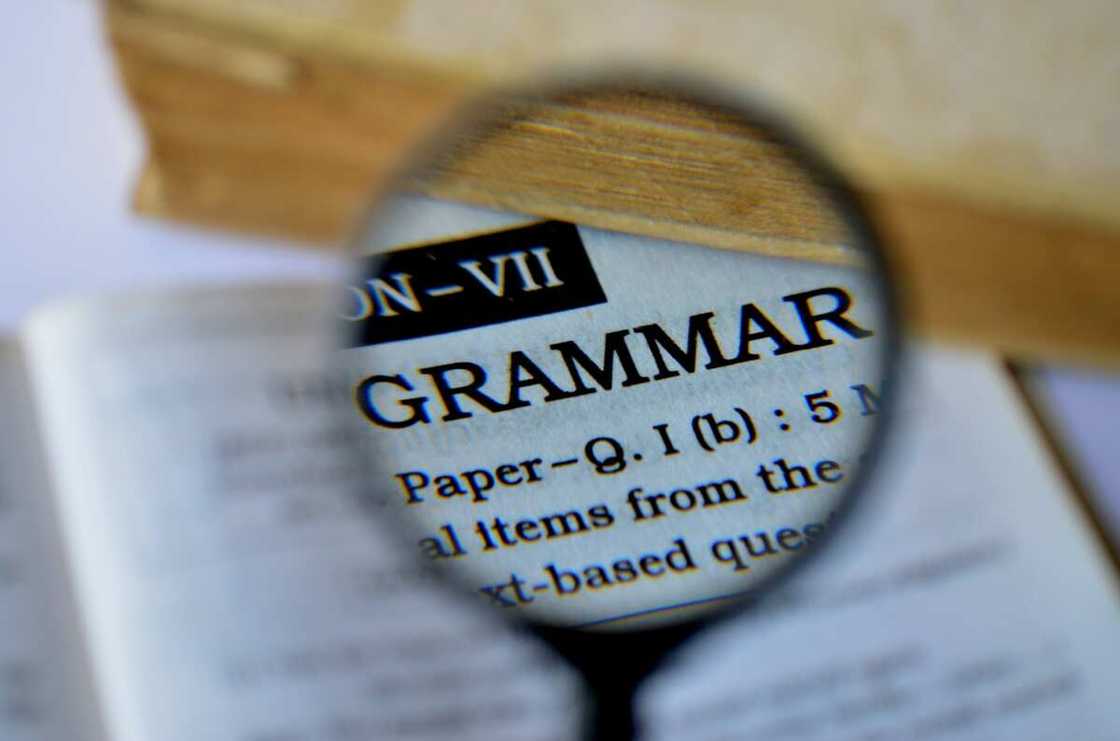Best anaphora examples, definition, uses in everyday language
What does anaphora mean? It is a rhetorical device in which a word or expression is repeated at the beginning of a number of sentences, clauses, or phrases. Find out more about this rhetorical device, how it is used, and common anaphora examples in literature, poetry, pop culture, and many more.

Source: UGC
Here is all you need to know about the device.
How do you define anaphora in literature?
Here are some common definitions of the term:
Anaphora literary definition: Anaphora is when a certain word or phrase is repeated at the beginning of clauses or sentences that follow each other. This repetition emphasizes the phrase while adding rhythm to the passage, making it more memorable and enjoyable to read.
Merriam-Webster definition: An anaphora is a repetition of a word or expression at the beginning of successive phrases, clauses, sentences, or verses especially for rhetorical or poetic effect
Merriam-Webster also defines an anaphora as the use of a grammatical substitute (such as a pronoun or a pro-verb) to refer to the denotation of a preceding word or group of words.
History of anaphora
The term "anaphora" comes from the Greek word for "a carrying up or back" ἀναφορά.
Why do writers use anaphora?
Anaphora is important in everyday speech and in more serious rhetoric as well.
Writers use it to emphasize a series of words. Anaphora can do the following:
- Express a strong feeling.
- Create rhythm in text, whether that rhythm is pleasing, rousing, or relentless.
- More clearly link two or more ideas through the repeated phrasing.
- Make a phrase more memorable for the reader/listener (allows for pleasurable reading which is easier to remember)
- Give structure to a lengthy list.

Source: UGC
Famous anaphora examples
Some famous examples of anaphora include:
1. Julius Caesar, shortly after the Battle of Zela, 47 BC
“I came, I saw, I conquered.”
2. Winston Churchill, House of Commons, London, England, 4 June 1940
“We shall fight in France, we shall fight on the seas and oceans, we shall fight with growing confidence and growing strength in the air, we shall defend our island, whatever the cost may be. We shall fight on the beaches, we shall fight on the landing grounds, we shall fight in the fields and in the streets, we shall fight in the hills …”
3. Martin Luther King, Jr., Washington, D.C., 28 August 1963
“I have a dream that one day this nation will rise up and live out the true meaning of its creed: “We hold these truths to be self-evident: that all men are created equal.” I have a dream that one day on the red hills of Georgia the sons of former slaves and the sons of former slave owners will be able to sit down together at the table of brotherhood. I have a dream that one day even the state of Mississippi, a state sweltering with the heat of injustice, sweltering with the heat of oppression, will be transformed into an oasis of freedom and justice. I have a dream that my four little children will one day live in a nation where they will not be judged by the color of their skin but by the content of their character. I have a dream today.”
4. Neil Kinnock, Bridgend, Wales, 7 June 1983

Read also
Emotional moment final year student kneels down for boy who hawks "pure water" to sign on his shirt goes viral
“If Margret Thatcher wins, I warn you not to be ordinary, I warn you not to be young, I warn you not to fall ill, I warn you not to get old.”
5. Steve Jobs, Macworld 2007 Keynote Address
“As you know, we’ve got the iPod, best music player in the world. We’ve got the iPod Nanos, brand new models, colors are back. We’ve got the amazing new iPod Shuffle.”
6. Bruce Aylward, TED Talk, March 2011
“We have a new vaccine, we have new resolve and we have new tactics.”

Source: UGC
Anaphora examples in literature
Check out these examples of anaphora in literature:
1. JD Salinger's The Catcher in the Rye
It rained on his lousy tombstone, and it rained on the grass on his stomach. It rained all over the place.
2. Charles Dickens' A Tale of Two Cities
It was the best of times, it was the worst of times, it was the age of wisdom, it was the age of foolishness, it was the epoch of belief, it was the epoch of incredulity, it was the season of Light, it was the season of Darkness, it was the spring of hope, it was the winter of despair, we had everything before us, we had nothing before us, we were all going direct to Heaven, we were all going direct the other way—in short, the period was so far like the present period, that some of its noisiest authorities insisted on its being received, for good or for evil, in the superlative degree of comparison only.

Read also
Nigerians react to photo of a young boy sitting beside a deity in a shrine, many say he is a spirit
3. Allen Ginsberg's "Howl"
Moloch whose eyes are a thousand blind windows! Moloch whose skyscrapers stand in the long streets like endless Jehovahs! Moloch whose factories dream and croak in the fog! Moloch whose smokestacks and antennae crown the cities!
4. The Great Gatsby
The apartment was on the top floor—a small living-room, a small dining-room, a small bedroom, and a bath.
Examples of anaphora in political speeches
Here are some more examples
1. Adlai Stevenson, 1952 DNC Presidential Nomination Acceptance Address
"That my heart has been troubled, that I have not sought this nomination, that I could not seek it in good conscience, that I would not seek it in honest self-appraisal, is not to say that I value it the less. Rather, it is that I revere the office of the Presidency of the United States."
2. Franklin Delano Roosevelt, On the War in Europe
"Upon the national will to sacrifice and to work depends the output of our industry and our agriculture. Upon that will depends the survival of the vital bridge across the ocean, the bridge of ships that carry the arms and the food for those who are fighting the good fight. Upon that will depends our ability to aid other nations, which may determine to offer resistance. Upon that will may depend practical assistance to people now living in nations that have been overrun, should they find the opportunity to strike back in an effort to regain their liberty; and may that day come soon."
3. Franklin Delano Roosevelt, Pearl Harbor Address
"Yesterday, the Japanese government also launched an attack against Malaya. Last night, Japanese forces attacked Hong Kong. Last night, Japanese forces attacked Guam. Last night, Japanese forces attacked the Philippine Islands. Last night, the Japanese attacked Wake Island. And this morning, the Japanese attacked Midway Island."

Read also
Viral video of church members praying and armed with different weapons to attack principalities cause stir
4. Shirley Chisholm, Presidential Candidacy Announcement
"I spend before you today as a candidate for the Democratic nomination for the presidency of the United States of America. I am NOT the candidate of black America, although I am black and proud. I am NOT the candidate of the women's movement of this country, although I am a woman and I'm equally proud of that."
5. Robert F. Kennedy's speech announcing the death of Martin Luther King, Jr. (1968)
What we need in the United States is not division; what we need in the United States is not hatred; what we need in the United States is not violence or lawlessness, but love and wisdom, and compassion toward one another, and a feeling of justice towards those who still suffer within our country, whether they be white or whether they be black.

Source: UGC
Examples of anaphora in pop culture
Here are some examples of the device in use in pop culture:

Read also
16-year-old genius invents "alerting Ear Piece" which allows cops to track human trafficking victims
1. In "Every Breath You Take" by The Police
Every breath you take
Every move you make
Every bond you break
Every step you take
I'll be watching you
2. In "If I Had" by Eminem
I'm tired of jobs startin' off
at $5.50 an hour, then this boss wonders why I'm smartin' off
I'm tired of bein' fired every time I fart and cough
Tired of havin' to work as a gas station clerk
For this j*rk, breathin' down my neck, drivin' me berserk
I'm tired of usin' plastic silverware
Tired of workin' at Builder's Square
Tired of not bein' a millionaire
3. In the hook of Nico and Vinz’s “Am I Wrong”
So am I wrong for thinking that we could be something for real?
Now am I wrong for trying to reach the things that I can’t see?
Anaphora poetry examples
Check out these examples of anaphora in poetry.
1. Sonnet No. 66 by Shakespeare

Read also
Street vulcanizer spotted teaching young boy serious English at his shop, photo surprises people
Tired with all these, for restful death I cry,
As to behold desert a beggar born,
And needy nothing trimm'd in jollity,
And purest faith unhappily forsworn,
And gilded honour shamefully misplac'd,
And maiden virtue rudely strumpeted,
And right perfection wrongfully disgrac'd,
And strength by limping sway disabled
And art made tongue-tied by authority,
And folly—doctor-like—controlling skill,
And simple truth miscall'd simplicity,
And captive good attending captain ill:
Tir'd with all these, from these would I be gone,
Save that, to die, I leave my love alone.
2. Joe Brainard in his book-length poem "I Remember"
I remember a piece of old wood with termites running around all over it the termite men found under our front porch.
I remember when one year in Tulsa by some freak of nature we were invaded by millions of grasshoppers for about three or four days. I remember, downtown, whole sidewalk areas of solid grasshoppers.
I remember a shoe store with a big brown x-ray machine that showed up the bones in your feet bright green.

Read also
4-year-old boy makes Yorubas proud, recites over 200 proverbs in the language, his video goes viral
3. In the poem London by William Blake
In every cry of every Man,
In every infant's cry of fear,
In every voice, in every ban,
The mind-forg'd manacles I hear
Anaphora in the Bible
The Song of Songs contains many examples of anaphora. Here is an example from Chapter Four, Verses One and Two:
Look at you! You are beautiful, my darling.
Look at you! You are so beautiful.
Your eyes behind your veil are doves
your hair is like a flock of goats
coming down from Mt. Gilead.
Your teeth are like a flock of sheep about to be sheared,
who are coming up from being washed.

Source: UGC
Anaphora sentence examples
Here are some examples of anaphora in simple, everyday sentences:
- I’m sick and tired of you letting me down. I’m sick and tired of you making me mad. And I’m sick and tired of you doing such silly things!
- Every single day you let me down. Every single day you make me mad. Every single day you do such silly things!
- You better be nice to my friends! You better leave them alone! And you better go away!

Read also
Nigerian lady reveals surprising way being an admin of a Whatsapp group adds quality to a CV, many react
How do you use the word anaphora in a sentence?
Here are some good examples of Anaphora in a sentence:
- The poem was a great example of anaphora as it started each line with the same three words.
- In order to vary sentence variety, my teacher told me to stop using an anaphora at the start of each paragraph.
- The classroom contract had an anaphora at the beginning of each new rule.
Now that you know some popular anaphora examples and how to use the rhetorical device, why not enrich your speech using it? For more interesting information, keep reading Legit.ng.
READ ALSO: Can you start a sentence with but: A grammatical explanation
One of the most deeply ingrained grammar rules involves the usage of the word 'but'. For a long time, teachers have told their students that they cannot use conjunctions at the beginning of sentences.
If you asked your English teacher "Can you start a sentence with but?" you would be met with a resounding 'No!' But where did this 'rule' even come from? And does it hold water? Legit.ng has all the answers!
Source: Legit.ng






